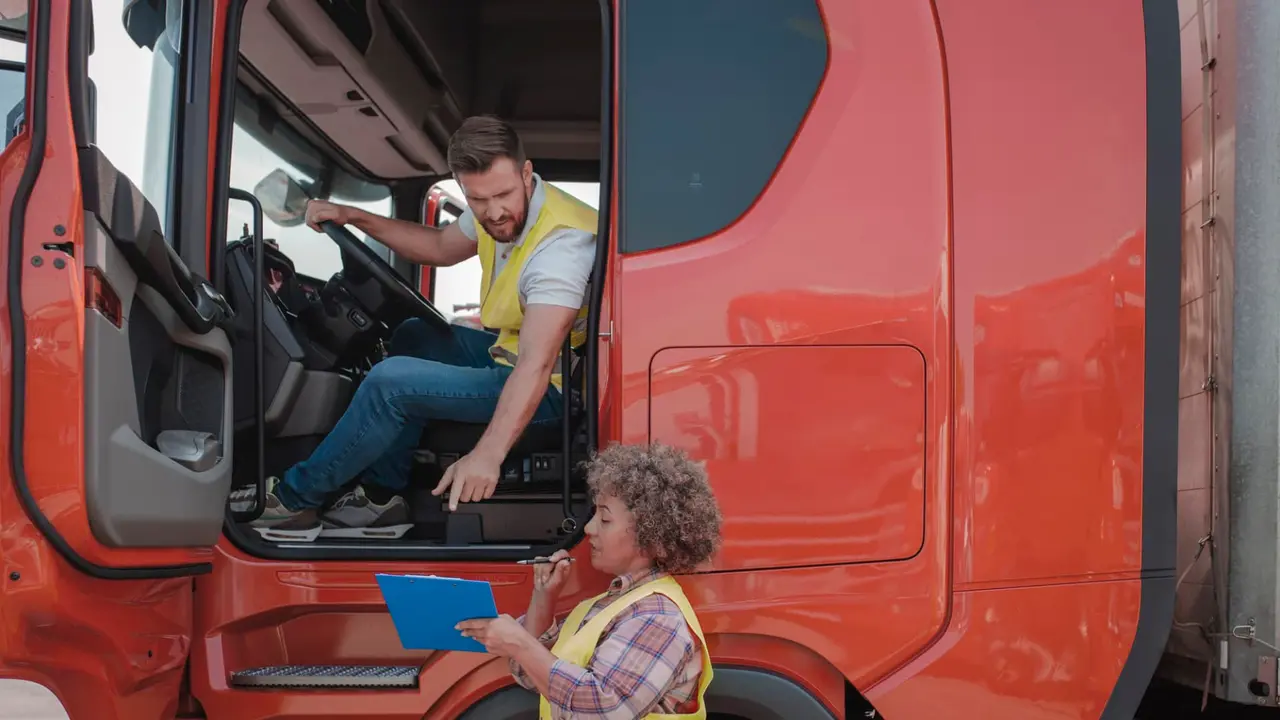Microsoft Study Reveals Jobs Most Vulnerable to AI Disruption
2 Sources
2 Sources
[1]
New research shows the 10 jobs most at risk of being replaced by AI -- and 10 jobs that are safe
New research shows which jobs are likely to be most impacted by artificial intelligence, and the results may surprise you. A new report from Microsoft, titled, "Working with AI: Measuring the Occupational Implications of Generative AI," takes a look at how workers in different fields adopt AI and how it will impact their jobs. Researchers analyzed what activities people used AI for in their jobs, how successful the results were, and what jobs the users had to come up with an "AI applicability score." The tech giant collected the data from 200,000 anonymous and privacy-scrubbed conversations between users and Microsoft Bing Copilot, a publicly available generative AI system, from January to September 2024.
[2]
Microsoft Study Identifies Jobs Vulnerable to AI. Is Your Position Secure?
Trina Paul is a Breaking News and Personal Finance Writer at Investopedia, covering topics like retirement, consumer debt, and retail investing. She focuses on making complex financial topics accessible and interesting to everyday readers, explaining everything from Social Security to the intricacies of 401(k)s. If you're a translator, historian, writer, data scientist, or customer service representative, your job could be ripe for being ). That's according to a new, not-yet-reviewed research from Microsoft Corporation (MSFT), which identified 40 occupations with tasks most likely to be replaced by AI. Their findings suggest that knowledge work and communication-heavy jobs are the most vulnerable to AI disruption, while roles requiring physical labor or direct human interaction are projected to stay relatively safe. To determine AI's potential impact, Microsoft researchers analyzed user interactions with Bing Copilot over nine months in 2024. They narrowed down the conversations to those related to work tasks and then measured how successful AI was at completing those tasks. They then combined that data with information on which occupations include those work tasks, calculating an "AI applicability score," which measures how likely a job is to be impacted by AI. Roles with the highest scores tended to include tasks such as information gathering, summarizing, or drafting -- all activities where AI performs well. These jobs included the following: The roles with the highest applicability scores tended to be knowledge work or . The researchers found that many Copilot users used the AI for gathering information and writing tasks, at which it rated well. "It is tempting to conclude that occupations that have high overlap with activities AI performs will be automated and thus experience job or wage loss, and that occupations with activities AI assists with will be augmented and raise wages," the researchers wrote. "This would be a mistake, as our data does not include the downstream business impacts of new technology, which are very hard to predict and often counterintuitive." On the flip side, jobs with the lowest applicability scores involved physical labor, working directly with people, or operating machinery. These jobs included the following: The way that AI impacts the workforce remains uncertain, even as investors pour billions of dollars into companies that promise to revolutionize the way people work. While certain jobs have many work activities, like doing research and writing, that can be automated or augmented by AI, the researchers did not find any occupations that AI could fully replace. "Our data do not indicate that AI is performing all of the work activities of any one occupation," the researchers wrote. For now, AI appears more likely to assist or augment certain job tasks rather than outright replace entire professions. But as the technology evolves, adaptation might be key for both employers and workers navigating this new era of work.
Share
Share
Copy Link
A new Microsoft research study identifies occupations most likely to be impacted by AI, highlighting the potential for significant changes in the job market across various industries.
Microsoft's Groundbreaking AI Impact Study
Microsoft Corporation has released a comprehensive study titled "Working with AI: Measuring the Occupational Implications of Generative AI," shedding light on the potential impact of artificial intelligence on various job sectors
1
. The research, which analyzed 200,000 anonymous conversations between users and Microsoft Bing Copilot from January to September 2024, aims to quantify the extent to which AI could replace or augment different occupations.Methodology and Key Findings
The study introduced an "AI applicability score" to measure how likely a job is to be impacted by AI. This score was calculated by examining the success rate of AI in completing work-related tasks and correlating this data with specific occupations
2
.Key findings include:
- Knowledge work and communication-heavy jobs are most vulnerable to AI disruption.
- Roles involving physical labor, direct human interaction, or machine operation are less likely to be affected.
- No occupation was found to be entirely replaceable by AI, suggesting a trend towards augmentation rather than full automation.
Most Vulnerable Occupations

Source: Fast Company
The study identified 40 occupations with tasks most likely to be replaced or significantly impacted by AI. These include:
- Translators
- Historians
- Writers
- Data scientists
- Customer service representatives
These roles typically involve tasks such as information gathering, summarizing, and drafting – areas where AI has demonstrated high proficiency
2
.Related Stories
Least Vulnerable Occupations
On the other end of the spectrum, jobs with the lowest AI applicability scores include:
- Physical labor roles
- Occupations involving direct human interaction
- Machinery operation positions
These findings suggest that roles requiring human touch, physical presence, or complex machine handling are less likely to be disrupted by AI in the near future.
Implications and Future Outlook
While the study provides valuable insights into AI's potential impact on the job market, the researchers caution against drawing hasty conclusions. They emphasize that predicting the downstream business impacts of new technology is challenging and often counterintuitive
2
.The research indicates that AI is more likely to assist or augment certain job tasks rather than completely replace entire professions. However, as AI technology continues to evolve, both employers and workers may need to adapt to a changing landscape of work.
This study comes at a time when investors are pouring billions into AI companies promising to revolutionize work processes. As the integration of AI in various industries accelerates, it underscores the importance of ongoing research and adaptive strategies in workforce development and education.
References
Summarized by
Navi
[1]
Related Stories
Microsoft Study Reveals AI's Impact on Various Occupations: Writing and Knowledge Work Most Affected
30 Jul 2025•Technology

Microsoft reveals 40 jobs most exposed to AI as translators, writers, and educators face scrutiny
20 Jan 2026•Business and Economy

AI Experts and Public Diverge on Job Market Impact: Cashiers, Journalists, and Factory Workers Most at Risk
08 Apr 2025•Business and Economy

Recent Highlights
1
Google Gemini 3.1 Pro doubles reasoning score, beats rivals in key AI benchmarks
Technology

2
Meta strikes up to $100 billion AI chips deal with AMD, could acquire 10% stake in chipmaker
Technology

3
Pentagon threatens Anthropic with supply chain risk label over AI safeguards for military use
Policy and Regulation





